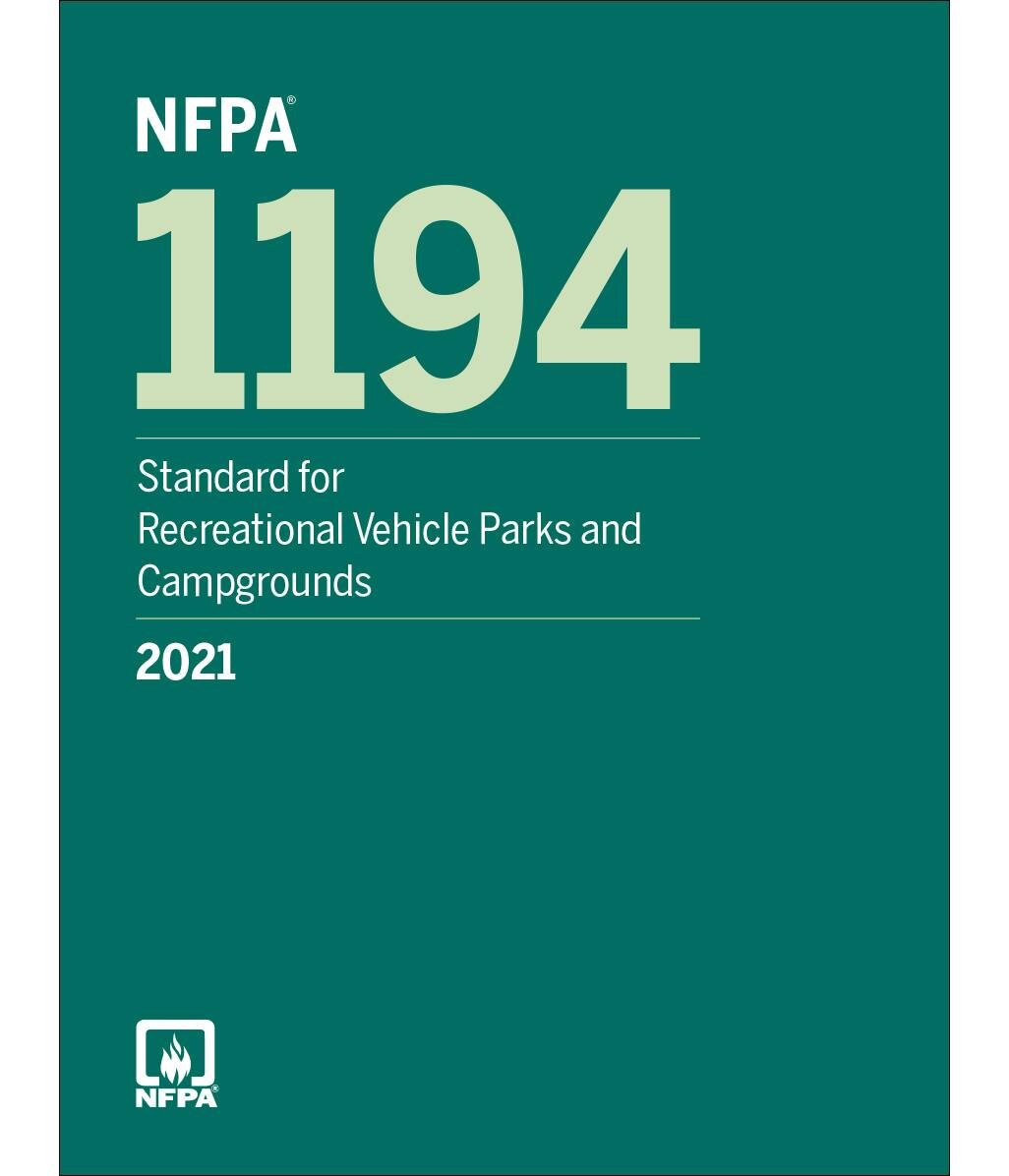NFPA 1194, titled Standard for Recreational Vehicle Parks and Campgrounds, is a code that establishes minimum safety requirements for the design, construction, and operation of RV parks and campgrounds. First introduced in 1991, this standard is updated periodically to reflect technological advances and evolving best practices in campground development.
The primary purpose of NFPA 1194 is to promote the safe and efficient use of land for RV camping while providing protection from fire hazards, electrical risks, and sanitation concerns. It applies to a variety of sites, including those for temporary, seasonal, or full-time occupancy.
Key Components of NFPA 1194
1. Site Design:
NFPA 1194 outlines criteria for the layout of RV sites, including minimum size requirements, spacing between units, access roads, and maneuvering room. Proper spacing is not only a convenience issue—it also plays a critical role in fire safety and emergency access.
2. Utilities and Services:
The standard provides detailed guidance on the installation of utility hookups such as electricity, water, and sewage. It defines the specifications for electrical service (typically 20-, 30-, and 50-amp hookups), potable water connections, and sanitary waste disposal systems. Compliance ensures that facilities meet both safety and health standards.
3. Fire Safety:
Fire protection is a significant focus of NFPA 1194. The standard requires clear access for emergency vehicles, fire extinguishers in common areas, and proper spacing to reduce the risk of fire spread between RVs. It also covers the use of fire-retardant materials in construction and signage for emergency procedures.
4. Sanitation and Hygiene:
Restroom and shower facilities, if provided, must meet hygiene standards regarding construction, ventilation, lighting, and water temperature. These rules help prevent the spread of disease and ensure guest comfort.
5. Administration and Maintenance:
Beyond physical infrastructure, NFPA 1194 also includes provisions for regular inspections, maintenance protocols, and operational policies to ensure ongoing compliance and safety.
Why NFPA 1194 Matters
Adhering to NFPA 1194 isn’t just about compliance—it also demonstrates professionalism and a commitment to safety. Campgrounds that meet these standards are better equipped to attract and retain guests, reduce liability risks, and maintain a reputation for quality.
In many jurisdictions, NFPA 1194 compliance is required by local authorities or zoning boards as part of the permitting process. Even in areas where it’s not legally mandated, following the standard is a wise move for any operator looking to create a safe and successful RV park.



